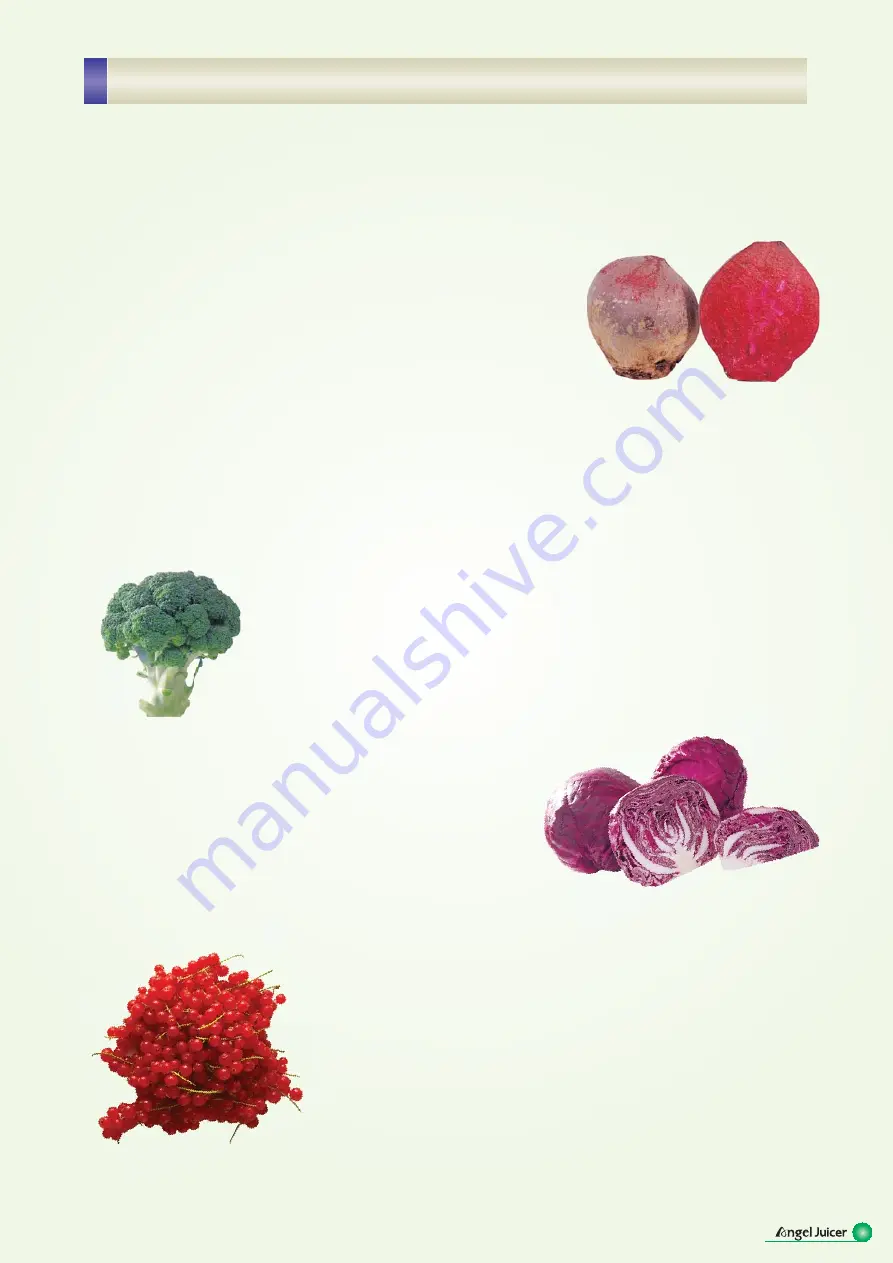
Nutrient Glossary
Beet Root
- Contains Betaine, which helps maintain liver function.
- The nucleic acids in beets nourish cells and supports cell respiration in the body.
- Supports cardiovascular health.
- Blood-supporting & building.
- Supports the blood with beneficial minerals and natural sugars.
- The body assimilates iron from the beet root
- more easily than any other known food
- unlike other sources of iron.
- Assists in maintaining cellular health.
- Helps maintain whole body health.
- Helps provide an easy assimilation of a wide spectrum of nutrients.
- Digestive stimulator, kidney purifier.
- Beets contain an abundance of Potassium, Niacin, Folic Acid, Zinc, Manganese, Magnesium,
Chlorine, Phosphorus, Calcium, Sulfur, Iodine, Iron and Copper, as well as traces of the rare metals
Rubidium and Cesium.
- Beets contain Carbohydrates, some Protein and Fat, as well as Vitamins A, B1, B2, niacin, B6, B12, and C.
Broccoli
contains the phyto-nutrient Sulphoraphane.
Sulforaphane belongs to a class of phytochemicals known as
isothiocyanates, which are known to strongly stimulate the body's natural
detoxifying enzymes. Aids in Cancer prevention and cell detoxification.
Broccoli is rich in vitamins A, C and folic acid and a full spectrum of
minerals.
Cabbage
contains naturally occurring phytonutrients.
These phytonutrients, such as sulforaphane, are believed to
have powerful antioxidant and protective capabilities.
Cranberry
are well-known for treating & preventing
urinary-tract infections, but they also protect against cancer, stroke
and heart disease and are a natural antibacterial.
Cranberries are rich in potent antioxidants - polyphenols and
procyanidins. Cranberries help reduce cholesterol, gum disease and
stomach ulcers and inhibit the growth of human breast cancer cells.
High in Vitamin C and dietary fiber. The fruits contain a variety of
compounds including anthocyanins, flavonol glycosides, catechin,
various organic acids, and small amounts of alkaloids.
C
pr
stom
High
com
“It is more important to know what kind of person has a disease
than to know what kind of disease a person has.” - Hippocrates
23
























